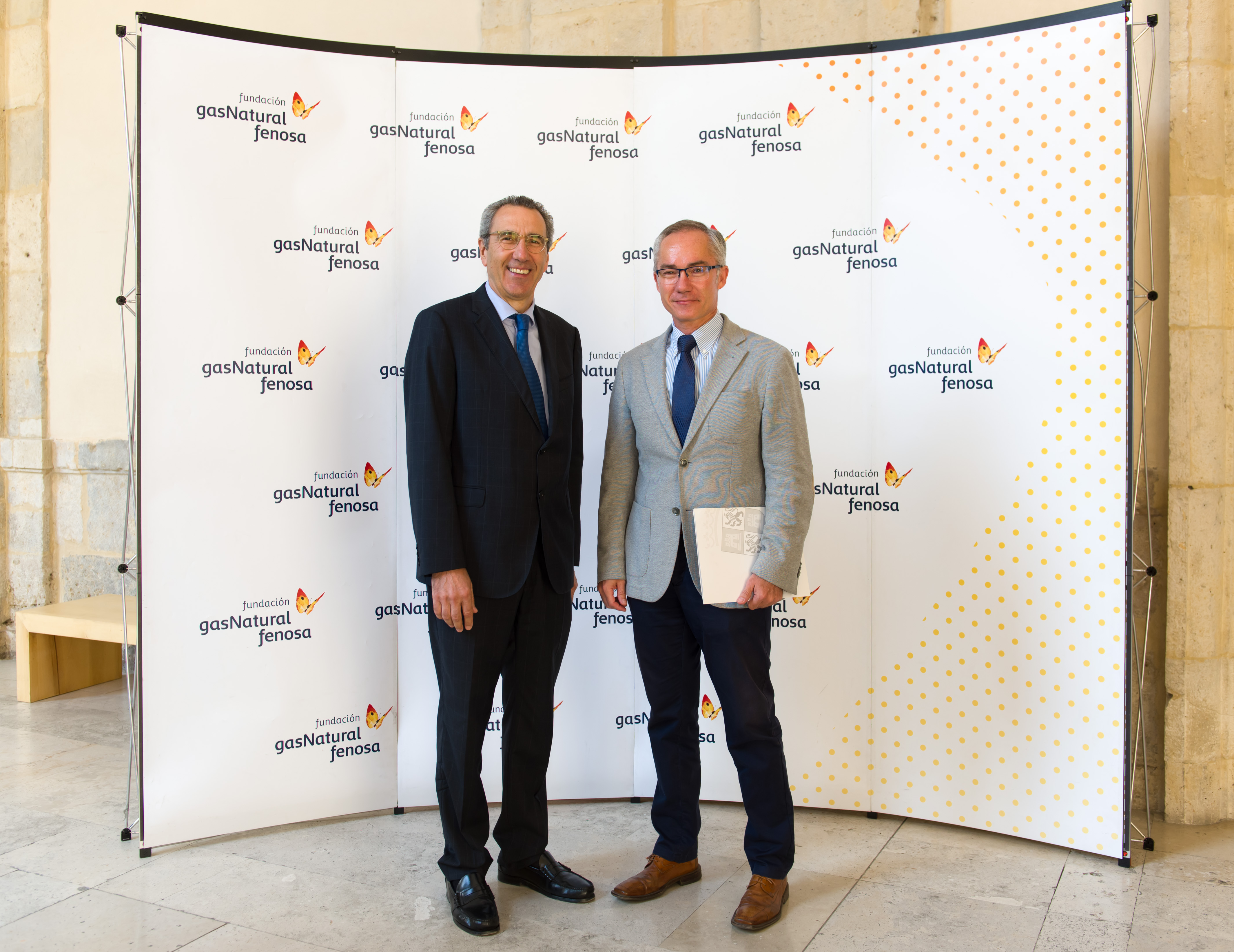The need for an energy transition opens up economic opportunities for a community such as Castile and Leon
At an event organised by the Gas Natural Fenosa Foundation in partnership with the Regional Government of Castile and Leon OMIE, various experts debated the sudden increase of renewable energy and the need for greater energy efficiency.
A simple, fair and understandable bill for 100% of the consumers is the best way to encourage sustainable, efficient and responsible energy consumption, according to one expert.

Today, the Director General of Energy and Mines of the Regional Government of Castile and León, Ricardo González Mantero, and the Director General of the Gas Natural Fenosa Foundation, Martí Solà, opened the La transición energética y el mercado eléctrico seminar at the Patio Herreriano Museum in Valladolid. More than 100 professionals attended the seminar where several experts discussed the current performance of the power market and the ever-increasing role of renewable energy and the total energy transition.
The Director General of the Gas Natural Fenosa Foundation, Martí Solà, stated that “an energy transition requires time and resources”. He also stated that “the energy sector creates a wide range of economic opportunities for Castile and Leon”. “It is a very attractive area for entrepreneurship with regards to the search for energy efficiency and respect for the environment.” Solà expressed his conviction that the energy future of Spain must include “all sorts of energy”.
The professor from the Technological Research of the School of Engineering (ICAI) of the Pontificia Comillas University, José Luis Sancha, raised the importance of simplifying electricity and gas bills to be able to understand them in greater depth. “Consumer surveys in Spain indicate a significant dissatisfaction with energy suppliers: 21% were either slightly dissatisfied or totally dissatisfied with their electricity supplier, and 15% with their gas supplier. The reasons for this are price, lack of clarity on the bills and the lack of information about the conditions of the contract.” That is why the recent “Winter Package” proposal from the European Commission commits to a more prominent role for the consumer. “A simple, fair and understandable bill for 100% of the consumers is the best way to encourage sustainable, efficient and responsible energy consumption,” claimed Sancha.
Changes to the energy model and their impact on the market
The Director of Operations at Red Eléctrica de España, Tomás Domínguez, claimed that the integration of renewables is a success story and remains a global reference. “Spain has managed to cover 40% of its annual electricity demand with renewable energy, has managed to position wind technology as the main element in the production mix for several years and has covered more than 80% of demand with renewables at certain moments. And this has all been achieved without compromising on security and quality for more than two decades of overcoming new challenges and despite limited interconnection with the rest of the European system.”
The Deputy Director of Regulation of Liberalised Businesses at GAS NATURAL FENOSA, Esther García, stated that they need to increase their presence in European markets, establishing clear guidelines where all agents participate under equal conditions and increasing interconnectivity. “The cost of the future energy mix is competitive and affordable for the consumers, but to achieve this we need to encourage investment in back-up facilities and renewables. To achieve the primary energy and CO2 emissions savings objectives, cogeneration will need to play an important role,” said García.
The Managing Director of Wind to Market, José Salmerón, supported the important role of traders: “It is important that as many participants as possible act in the market so that the price reflects the real costs.” Salmerón concluded by recalling that the energy business allows for maximising the margin obtained and managing the risk of an energy business, and that the competing segments “generate risk and opportunity”.
The national and international experience
The Director of the Energy team at Accenture Strategy, Antón Riestra, explained that the power market in Spain, as in many international markets, has followed a similar structure whereby large generation plants supplied the required electricity to consumers through a transport and distributions system that was paid for in a regulated way. “We have recently observed a series of trends that are raising questions about the traditional structure and that suggest the need to introduce changes to the interactions that result from it. These trends are paving the way for new business models.”
To conclude, the Director of Market Monitoring at OMIE, Juan Bogas, stated that the future objectives of the power sector are to comply with the COP-21 agreement, address the changes in the electrification of the economy and manage the increase in renewable energy. To reach these objectives, he said the markets “should increase their flexibility with a correct design and efficiently integrate the wholesale markets in the European system, which will result in electricity becoming a commodity”. “The great challenge will be integrating the demand,” he added.
Share